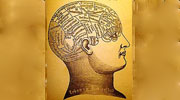Supporting a Program for Speech Rehabilitation for young Patients
Project location: Italy, Rome
Project start date: December 2011 -
Project end date: December 2012
Project number: 2011-51
Beneficiary: Ambulatorio Psichiatrico-Psicologico Associato “Angelo Azzurro”
[2013-012 |2015-015]
The Ambulatorio Psichiatrico "Angelo Azzurro'' has been involved in the rehabilitation of patients suffering from different kinds of disabilities for several years. It has cooperated with public and private health local units and surgeries and thanks to these direct experiences it has been possible to spot the increase of speech disorders in the last few years, somehow enhanced by problems in the family context. Dealing with children, it was observed that an early detection of the speech disorders in their pre-school or school age gave them the best results for a complete recovery. Moreover, these young patients developed those personal skills and problem-solving capabilities that gave them the possibilities to act effectively in the family, school ,social and working spheres.
This project received a grant from the Nando Peretti Foundation, and deals with the prevention, the evaluation, and the rehabilitation of speech disorders in the years of growth. This project is addressed to 10 children suffering from stammer, dysarthria, dyslalia, learning disorders ( such as dyslexia, dyscalculia, dysgraphia, dysorthography etc.) and speech difficulties of different kinds such as in hyperactive children with relationship difficulties or social and cultural inadequacies.
The aim of the rehabilitation program is the research of the prerequisites to learning, communication skills, general performance, buccal abilities and deglutition, speaking and curricular capabilities. The areas to be investigated will be set according to the characteristics and needs of each child patient.
The complex nature of the neurological disorders necessarily involves a multidisciplinary care. Children suffering from speech disorders will follow a rehabilitation program agreed by a multiprofessional team in which all the professionals will discuss and cooperate respecting their areas of competence pursuing common goals. The team will be formed by a child neuro-psychiatrist, a psychologist, two family therapists, a speech therapist and a coordinator. The psychologist will give a battery of tests to detect the problematic areas to be treated and to psychologically support the child during his rehabilitation. Not only will the family therapists be in charge of the anamnestic data collection, but they will have to understand the relationships inside the family thanks to meetings with the children's parents, and estimate the emotional and affective atmosphere in which the child is growing up. All the different phases of the project will be regularly discussed inside the team and shared with the family and, when necessary, information and communications will be exchanged with the little patient's teachers.
The time frame of the rehabilitation intervention is strictly connected to the clinical condition and to the personal and environmental resources of the patient to treat. The intervention will be developed in accordance with the detected specific problems by means of speech targeted interventions.(once or twice a week).The themes relating to specific problems will also be taken into consideration through small-groups discussions managed by more than one professional, by means of family counseling interventions or individual psychological therapy for the children and/or their parents. Some of the interventions will involve also the schools attended by the children. The rehabilitation program foresees a one-year period of time.
This rehabilitation project foresees flexible and diverse strategies that will allow each patient to regain the right speech skills that are essential to the harmonious development of a person. In fact speech represents the primary mediator in social interaction and thought organization processes. It represents also the fundamental basis for future cognitive, social and affective acquisitions.
This project received further grants also for years 2014 and 2015.





